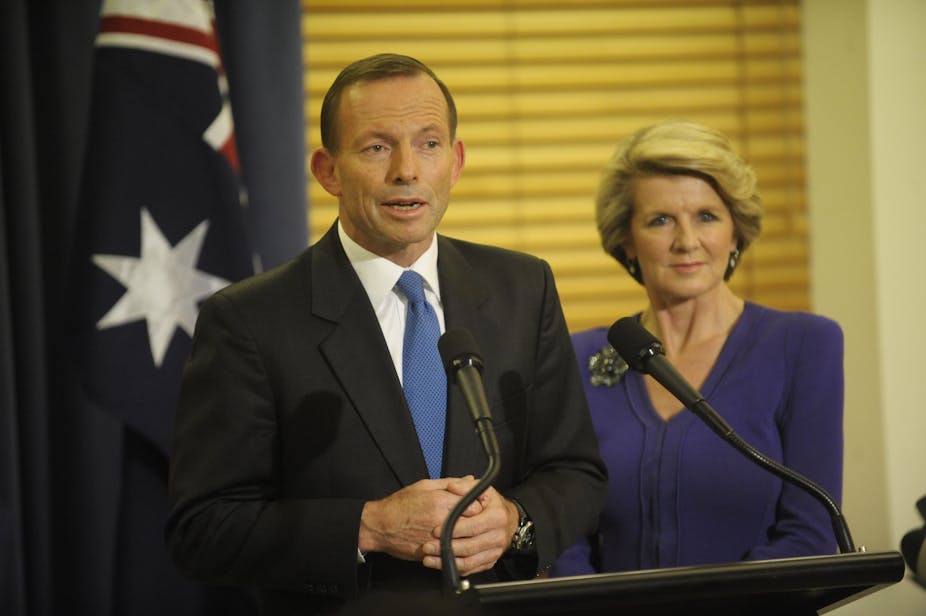With such unprecedented turmoil inside the Labor Party over leadership it is not surprising that we have all forgotten about the opposition. You know, the government-in-waiting, the other mob, the Coalition made up of the Liberal, National, Liberal National Party (Queensland) and Country Liberal Party (NT). The one led by Tony Abbott.
The need for the opposition to be more than a critic of the government and to articulate its policies was considered last March, when a push by the ALP to install Kevin Rudd failed.
However, conditions have now changed. With the September 14 election less than 80 days away - and now it might be earlier - the opposition cannot continue to rely on broad generalisations, or to be concerned that their policies might be “stolen” by the government.
The revival of the Rudd prime ministership also means that the focus on the internal leadership woes of the government which distracted media and government attention from the opposition’s policies - or in some cases like with education and health, the lack thereof - has ended.
The Gillard government failed to flush out any of the controversial aspects of the opposition’s policies or would-be polices. Attempts to portray the incoming Abbott government as a cost-cutting, public service slashing government have not worked. After all, Abbott endorsed the cuts that former treasurer Wayne Swan announced in the May budget.
Trying to nail down the opposition’s stance on education has also failed.
Seeking to differentiate the Gillard government’s initiatives on disabilities from the opposition’s supposed more stringent views of public spending failed, with Abbott endorsing the proposed new levy arrangements for the National Disability Insurance Scheme.
The flaws in the opposition’s climate change policies – the Direct Action plan - were never exposed. Given recent developments in the United States on this matter we can expect the Rudd government to be giving this policy area considerable attention. However, the resignation of climate change minister Greg Combet in the wake of the Rudd revival poses its own problems for the government.
Now, with a united Labor Party (relatively) and with the leadership issue off the boil, there will be more scrutiny from a focused government and commentators sceptical about an Abbott opposition. The opposition’s previous unimpeded march to office, though still highly probable, is now going to be more difficult.
The initial challenge for the opposition is whether to focus on all the disaffected comments about Rudd made previously by senior Labor figures or to go for the policy issues.
Recycling all the bile about Rudd by his colleagues should be used by the opposition with extreme caution. It is tempting, but voters expect attacks on personalities by political opponents and usually do not like it.
It is clear that the Rudd line - which we have heard previously from Gillard minsters, but will get amplified by the new prime minister - is that Abbott will be a risk to Australia. He will initiate spending cuts, and the spectre of the Newman LNP Government public service cuts will be repeatedly invoked.
Abbott’s supposed reactionary politics and conservatism (read: Abbott’s Catholicism) will be run through issues not only about women, abortion but also in relation to the same-sex marriage issue. It is not accidental that Rudd some weeks ago shifted his own stance on this, and his explanations for this make for interesting reading.
That some of Abbott’s own frontbench and potential leader (Turnbull) have different views on this issue make this a potentially difficult issue for Abbott and the opposition.
What Australian voters want is to be told the nature of the issues the nation faces and and the policies needed to address these issues. The time for the opposition fudging policies, for camouflaging difficult options in the government’s own leadership tussles are over.
The phony war is over. The politics of personal attacks, of a government imploding and allowing the opposition an unimpeded march to office is also over. The opposition now has to work to get into office as they should. Bring on the policies.

